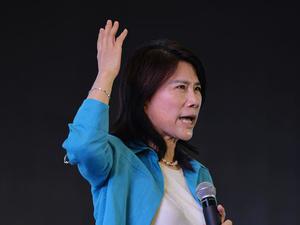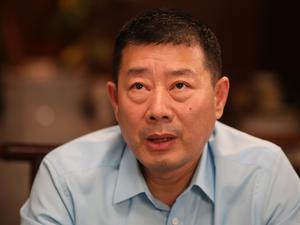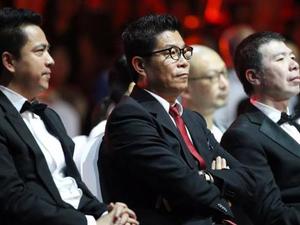来源:四大新鲜事儿

事件概述
近日,安永新西兰因为各种负面消息成为新闻焦点。
Stuff资深记者Paula Penfold追踪了安永新西兰分公司正在发生的公关问题并采访了安永新西兰管理合伙人Simon O’Connor,揭示了近期负面消息背后的故事。
早在2月份,安永新西兰分公司主席Braden Dickson因“历史行为问题”离职。当时社交平台有网友发帖表示,Braden Dickson因长期存在的不当行为被解雇。O’Connor接受采访时未透露Dickson的历史行为问题是什么,只表示,Dickson的行为“不符合我们的行为准则,不符合我对任何员工的期望,更不用说作为合伙人的期望”。他以透明、公开的方式终止了Braden Dickson的合伙关系。
Stuff当时报道Dickson离职后,陆续有举报人联系记者爆料其他高级职员存在不当行为。还有被指控性骚扰的员工获得了晋升。
5月份,又有两位高级职员辞任。
一名消息人士告诉Stuff,两名董事(不是Dickson)“与一名毕业生一起出差,两人打赌说要在同一次旅行中与她发生性关系,然后回来告诉了别人这件事。这名毕业生意识到这些流言蜚语后辞任”。
另一名资深男性员工也成为Stuff关注的焦点。一名前女性员工表示,她保存着一个文件夹,保存了一些该男子的不当言论。另一人形容这名男子是“一个色狼。他太令人恶心了。”
Stuff已联系两人寻求评论。两人均未做出回应。
O’Connor称,有四名员工对其他两人提出投诉,指控他们在过去12至18个月内存在不当行为。
他没有透露指控的内容,但确认这些指控非常严重,达到被解雇的程度。两人当天晚些时候辞职,他们的雇佣关系立即终止。
员工对Braden Dickson及2位高级职员的不当行为指控,让安永大洋洲的公司文化受到大众关注。
2022年8月,安永悉尼办公室审计师Aishwarya Venkatachalam在一次工作活动后被发现在办公室去世。
此后,安永委任前澳大利亚性别歧视专员Elizabeth Broderick的公司对安永大洋洲的工作场所文化进行广泛独立审查。
Elizabeth Broderick的团队对澳大利亚和新西兰的4500名员工进行了调查,结果令人震惊,安永大洋洲15%的人遭受过欺凌,10%的人遭受过性骚扰,而遭受这些的大多数人都没有发声。大家对相关事件的处理几乎没有信心。
安永新西兰主席因不当行为被解雇
2024年2月,网上有一篇帖子问道:“为什么安永新西兰主席Braden Dickson会因为行为不当而被解雇?”
安永悉尼大洋洲分公司向《Stuff》证实,Dickson确实在接受调查后离开了公司。对此,Dickson不予置评。
O'Connor在采访时不愿说出历史行为问题是什么。
O'Connor表示,Dickson的行为“不符合我们的行为准则,不符合我对任何员工的期望,更不用说他还是一位合伙人”。

指控不断出现
一位知情人士透露,该公司2位总监和一名毕业生一起出差,两人都打赌要在出差途中和她发生性关系,并在出差回来后告诉了别人。这名毕业生听到了这些流言蜚语就辞职了。”
O'Connor说:“这是完全不合适的行为。”“如果有人能向我提供细节,我可以向你保证,我们会进行调查。”
《Stuff》了解到,一名高级男性员工遭到了三起投诉,安永曾就他进行过合伙人级别的讨论,但最终他被留了下来。
另一名高级男性员工受到《Stuff》的重点关注,他涉及一系列严重程度问题。一位前女员工说,她有一个文件夹,里面放着这名高级男性员工发来的不恰当信息,通常是对我外表的‘恭维’评论,邀请我一起喝一杯,或者类似‘如果你在这里我会更开心’之类的评论”。
她说,她没有对他提出正式投诉,但她觉得保存的文件夹是“女性必须采取行动防范男性高层领导性骚扰行为的措施”。
《Stuff》杂志联系了两人请其置评。双方都没有回应。
安永最新的调查
O’Connor称,有4名员工对2人在过去12至18个月内发生的不当行为提出投诉。
他不愿透露具体指控是什么,但他证实,这些指控足够严重,可能会被解雇。当被投诉的2人知晓后,他们当天就辞职了。
O’Connor不愿透露这些员工姓名。
对举报人来说,辞掉不当行为的员工会使他们满意,但他们仍然有所担心。
一名前雇员在解释他们为什么会这样做时直言不讳地指出:“这些人知道在对自己有利的时候如何表现得体。这是傲慢、自以为是,而且他们知道自己的上司不会对自己的行为提出异议。合伙人促成了掠夺性行为。”
O’Connor表示,他对这种观点感到“担忧和苦恼”,但他表示,他并不知道新指控中所抱怨的行为。他承认,可能工员之前就有担忧,投诉者之所以失望,是因为“我们没有做到透明”。我需要让我们的文化达到对这一过程充满信心的程度。”
原英文报道如下:
You would be forgiven if all the reviews, investigations and reports at EY are blurring into one. Stuff senior journalist Paula Penfold traces the unfolding PR problem for the New Zealand branch of the massive international company with the tagline “building a better working world”.
It has taken two months to get the boss of EY NZ, Simon O’Connor, to agree to an interview. When he welcomes me into their mirrored glass offices in Auckland’s Takutai Square, O’Connor says he wishes he could have talked sooner. By the end of it, he’s fighting back tears.
The emotion appears a manifestation of the pressure he’s under, as the company he’s been part of for 35 years is in the news for all the wrong reasons.
It began in February with the departure of EY NZ’s chair over an “historical behavioural matter”, and continues. Earlier in May, Stuff revealed EY had launched a new investigation into misconduct allegations.
Last week, two senior staff resigned under a cloud.
So what is going on at EY, and why does it matter?
First of all, what is EY?
EY is one of the “Big Four”: the largest global accounting and professional services firms. Apart from EY (formerly Ernst & Young) there’s KPMG, Deloittes, and PriceWaterhouseCoopers (PwC).
EY NZ is part of EY Oceania, which in August 2022 found itself dealing with a tragedy: 27-year-old auditor Aishwarya Venkatachalam was found dead at the company’s Sydney office after a work function.
Her death was the major impetus for a widespread independent review of workplace culture, carried out by the firm of former Australian Sex Discrimination Commissioner, Elizabeth Broderick (the EB&Co report).
O’Connor says he insisted EY NZ be part of the review. “So I signed us up to total transparency that we would make that report public.”
The review canvassed 4,500 staff across Australia and New Zealand and the results were damning: a culture of “profit over people”, 15% had experienced bullying, 10% sexual harassment. Most didn’t report it. There was little trust in processes for dealing with it.
“It was a shock for a lot of people,” says earnest, quietly spoken O’Connor, “including me. Absolutely devastating.”
As promised though, EY publicly released the findings. And that might have been the end of the matter. It was, after all, “the most comprehensive review of workplace culture ever undertaken in the New Zealand professional services industry”.
But EY bosses may have underestimated the discontent — anger, often — among both current and former staff, some of whom described deep trauma, some who didn’t get to participate in the review, and others who, having witnessed nothing much change since, began to see it as window dressing.
The Broderick report had no impact on culture or behaviour, was how one described it.
Let’s go back a few months
A post in February on an obscure professional social networking site asked, “Why did the EY NZ chairman, Braden Dickson, get fired for misconduct?”
The post went on to discuss Dickson’s apparently “long history” of behaviour issues.
EY Oceania in Sydney confirmed to Stuff that Dickson had indeed left the company after an investigation. Dickson wouldn’t comment, then or now.
And O’Connor won’t say what the historical behavioural matter was: the other party does not want him to, he says.
What he will say is that Dickson’s behaviour “did not meet our code of conduct, did not meet my expectations of any of our employees, let alone a partner”.
“I terminated [Dickson’s] partnership,” O’Connor says. “I did it transparently, publicly, not in a way that had been done before.
“Perhaps I was naive. I actually had thought, ‘yes, we’re going to take some heat for this’ … but if someone’s inclined to misbehave in a workplace, they’re certainly not going to stay in the workplace. If all businesses do that, over time we’re going to have a better, safer work environment across New Zealand.”
After Stuff reported Dickson’s departure, a whistleblower contacted us, which for any company, in any industry, is usually a sign all is not well. Happy employees and ex-employees don’t seek out journalists.
So when another got in touch, and then another — now 20 whistleblowers — EY began to have a serious reputational problem on its hands.
O’Connor knew there’d be heat, but it was a “bit hotter than I was expecting”.
Because those whistleblowers had plenty to say.
When Stuff reported concerns that serious sexual harassment went without much consequence, EY clients were reading too.
One of them was Corrections, which had contracted EY to review its sexual harassment procedures. It asked for a “please explain”.
Then an anonymous complaint within Fonterra in April triggered a domino effect of responses.
First, Fonterra launched an internal investigation into EY staff who’d been the subject of misconduct investigations being on site at Fonterra. “We contacted EY and requested that any contractors subject to past or present investigations into misconduct be removed from Fonterra projects,” Fonterra said.
That investigation is being carried out by Auckland law firm Scovell & Co, by lawyer Sophie Gladwell. Gladwell said she was unable to comment. Fonterra would only say the investigation was ongoing and that as an internal matter, its findings would not be shared publicly.
Then, when Stuff asked EY about the Fonterra investigation, EY launched its own new review of the handling of misconduct complaints made over the past five years. That review is being conducted by Andrew Scott-Howman, a barrister and workplace investigator specialising in employment law and practises.
EY wrote to its clients to let them know. But when Corrections got the email, rather than be reassured, it fired EY. “We don’t believe it’s appropriate for us to continue to use EY’s services to conduct our own independent review into sexual harassment while at the same time they will be the subject of their own independent review,” Corrections said in a statement to Stuff.
And still, the allegations kept coming.
One source told Stuff two directors (not Dickson), “went on a work trip with a graduate and both made a bet to have sex with her on the same trip. Then came back and told people about it. She found out about the gossip and left”.
“That would be entirely inappropriate behaviour,” O’Connor says. “And if anyone could provide me with details, I can assure you we will investigate that.”
The ‘secret drinking club’
If there’s a theme that comes through resoundingly clearly in both the EB&Co report and in the complaints made to Stuff since, it’s of a drinking culture described as “extraordinary”, by one former employee, as “horrific” by another.
There’s one client relationship in particular where overuse of alcohol was raised by numerous sources: EY’s biggest account, Fonterra.
Braden Dickson was one of the head EY figures on the Fonterra account.
Stuff has been told of a “secret drinking club” involving senior people from Fonterra and EY which would take place at “various venues in Auckland and Hamilton”.
Drinking is, of course, part of the entertainment culture at plenty of corporates. But questions are being asked by current and former staff about whether the tight relationships led to lines being crossed.
“How can Fonterra and EY people who are meant to be negotiating and managing projects be out drinking together several times a week, often until the early hours of the morning?,” asked one insider.
From various industry sources, Stuff understands EY was recently selected as a design partner on a major Fonterra project. If the contract continues as proposed, it will be worth in the hundreds of millions over a period of years.
Stuff has seen documentation which shows an internal audit team at Fonterra is now looking at the major project. “There were concerns raised at Fonterra, saying, hang on, did EY have the best bid?,” said a source.
Got a tip for us to investigate? Email us securely at investigations@stuff.co.nz
Fonterra did not answer questions about an audit or the “secret drinking club”. O’Connor says he is not aware of any such club and that any entertainment spending is closely monitored.
But some of the EY names involved in that club are well known to whistleblowers who’ve been talking to Stuff.
Stuff is aware of three complaints against one senior male employee, and that there were EY partner-level discussions about him, but ultimately he was kept on.
Another senior male staff member is the subject of multiple concerns voiced to Stuff, covering a range of levels of seriousness. At the lower end, a former female employee described keeping a folder of “inappropriate messages from [the man], usually ‘complimentary’ comments on my appearance, requests to join for drinks or comments along the lines of ‘I’d have more fun if you were here’”.
She said she didn’t lodge a formal complaint about him, but felt her folder was “another example of females having to take action to safeguard against actions of their male senior leadership”.
Another described the man as “a predator. [He] is just disgusting.”
Stuff has approached both men for comment. Neither has responded.
Which brings us to the present day, and the latest EY investigation.
O’Connor says four people made complaints against two individuals, over behavioural misconduct that had allegedly occurred within the past 12 to 18 months.
He won’t say what the allegations were, but confirms they were serious enough that dismissal would have been a possible outcome. When the allegations were put to the two individuals, “those respondents resigned later that day”, their employment ceasing immediately.
O’Connor would not say who those employees were.
The resignations bring some satisfaction for whistleblowers, but they still have concerns about responsibility higher up the chain.
“These men know how to behave appropriately when it benefits them,” said a former employee who didn’t mince words when expressing their view on why they behave the way they do. “It’s arrogance, entitlement and the knowledge that they work for people who won’t take issue with their behaviour. Partners have enabled predatory behaviour”
O’Connor says he’s “concerned and distressed” about that view but says he “absolutely” did not know about the behaviour complained about in the new allegations. He acknowledges there may have been prior concerns and that the complainants had been let down because “we haven’t been transparent. I need to get our culture to the point that there’s confidence in this process”.
So many NDAs
Many of those spoken to by Stuff had signed non-disclosure agreements, NDAs, though even confirming the existence of any agreement put those people in breach — hence they didn’t want their names revealed.
Such confidentiality agreements came to prominence during the #MeToo movement. Film producer Harvey Weinstein used them to silence women he’d sexually harassed or assaulted, which was a major factor in the years-long battle for his behaviour to be made public, allowing him to continue the harm.
One ex-EY employee who felt coerced into signing an NDA said, “I was required to keep my complaint confidential but it was obviously talked about amongst management.
“I have suffered sexual harassment before but the reason this one hit me hard was mostly because I felt like everybody knew, and I didn’t know who was safe to be around. I suffered panic attacks going into the office, it was really uncomfortable.”
In mid-may, after Stuff raised staff concerns about the use of NDAs, O’Connor said in a statement that “like many organisations across Aotearoa New Zealand, when an employee negotiates an exit, we have used confidentiality and non-disparagement obligations in the standard template, designed to protect the employee and EY”, but that the practice was being reviewed.
By the time we sit down for an interview, he goes a step further.
“We’re no longer using NDAs,” O’Connor says. EY will waive the agreement if anyone requests it. O’Connor commits to EY not taking action against anyone who has breached their NDA by talking to Stuff.
‘A few Mexicans’
It wasn’t always sexual harassment or bullying that was troubling. Another employee concern which came through strongly in the EB&Co report was racism, cited by 8% of those surveyed, and echoed by one of the whistleblowers who contacted Stuff.
EY Oceania Auckland managing partner Jo Ogg, who sits on the Oceania People Council, “focused on engagement, diversity and inclusiveness”, wasn’t seen as being quite on brand during a family trip to Mexico. It’s a while ago, 2015, but what played out remains relevant because of the way it was dealt with by EY only three years ago.
Ogg posted about the trip on Facebook. She was having the family’s washing laundered at a “full service pay by the kilo” laundromat. “Liking this pay and walk away concept!!”, she wrote.
“I am thinking about bringing a few Mexicans home!!!” And further, “I reckon they would do a great job with children and possibly whip up some nachos whilst they are pressing the sheets…”
The posts were found in 2021 by a new EY employee who noticed “the culture at the company was a bit odd”.

After being given her ID and computer, “I was sent on my way,” she said. “No one from my team ever contacted me to introduce themselves”.
The employee began to look up her team members online in an effort to get a better understanding of who they were, and found Ogg’s posts from Mexico. She made a complaint via EY’s “ethics hotline”, referencing an anti-racism campaign the company was promoting at the time.
“[It] went unanswered for months with Ogg’s Facebook profile still set to public. After three months, I logged into the hotline website and asked if there was any update. About a week later, I received a reply stating that Ogg had been spoken to about her duties as a partner representing the firm.
“When I checked her Facebook profile, it had been set to private. There was no response about her understanding her actions or offering an apology for offending people through her posts. Her profile was set to private and everything moved on as normal.”
“I would like to see an acknowledgement from Ms Ogg that she made this post and recognises how the viewpoints communicated in the post are demeaning and hurtful to other people. I want to see less blanket statements about doing better and instead see some personal accountability and growth from the people leading that company.”
Ogg said she was “very surprised this is being raised again now, some ten years later”.
However, in a statement, which she said she would expect Stuff to include in its entirety, she set out her side of the story.
“I am a working mum and at the time, had three young kids. My family generates a lot of laundry”.
“One of the nice things about being on holiday is someone else doing it for me. When travelling I often post pictures of laundromats and washing, aimed at my friends who are also busy mums. This post on my private page was made in the spirit of a group of working women commenting in a light-hearted way about how having laundry done for us at home would be wonderful.
“It was not intended to be offensive, derogatory or demeaning to anyone. I was very surprised when, six years after this post, an anonymous complaint was made to EY about it. The complaint was reviewed by EY Australia and found to be without substance. I have never had any other complaints raised in my career.
“As a senior female leader in professional services, I am supportive of all races, religions and sexual orientations. I am proudly Greek Cypriot with a Jewish mother, and can assure you I do my fair share of laundry.”
It’s just one business, why does all this matter?
EY is hugely influential among New Zealand businesses, organisations, and government agencies, auditing or providing advice which influences how those organisations are run.
It employs some of New Zealand’s top university graduates, so EY partners have significant influence over the professionals they, in turn, become. Contracts carried out by EY staff for the public sector often lead to jobs. “Even people who were really horrible are now in quite senior government department positions”, said an employee who left because of bullying.

While former staff are relieved EY is attempting to reform its culture, they’re also angry at the damage inflicted along the way, which, for many, continues.
One, who left early in her employment at EY because of “this group of toxic people”, said “professionally, I would be further into my career if I hadn’t left when I did. I’d be far better off financially”.
“In my case it affected my mental health,” said another, “and in the case of others it can seriously affect their career path in a way that is both unfair and personally damaging.
“If they had just done the right thing back then none of this would have happened.”
O’Connor is sorry. “I’m personally and on behalf of the firm really sorry for those people that have … not felt heard. I think we’ve let them down.”
Asked whether the number of whistleblowers and their information being publicly aired had been damaging to EY, O’Connor is frank, but manages a bright side.
“Look, it’s certainly not brand-enhancing. It’s not making our people feel the pride in their workplace that they would have before this media. But longer term, we’ll only be stronger for this. We’ll have absolutely no inappropriate behaviour here. That is my goal.”

VIP课程推荐
APP专享直播
热门推荐
收起
24小时滚动播报最新的财经资讯和视频,更多粉丝福利扫描二维码关注(sinafinance)







